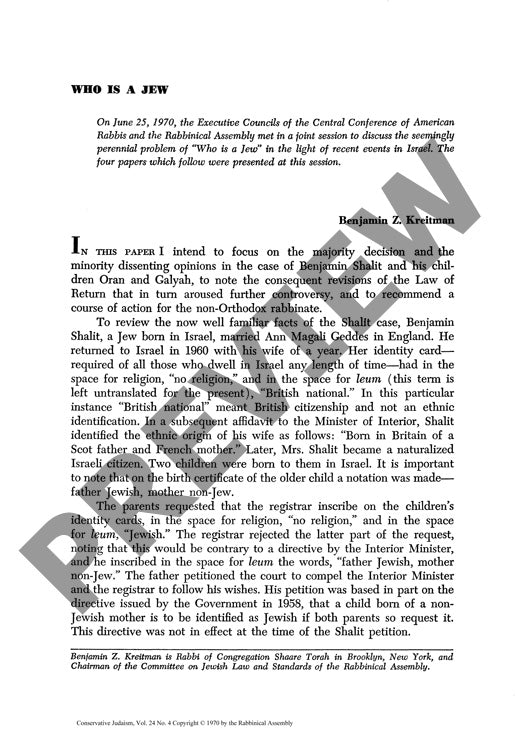Who Is a Jew
Couldn't load pickup availability
The 1970 Shalit case in Israel exposed a fundamental rift in how Jewish identity is defined, pitting traditional religious law against modern secular nationalism. When the Israeli Supreme Court ruled on registering children of Jewish father Benjamin Shalit and his non-Jewish wife as Jews, it sparked intense debate about the essence of Jewish belonging. Through analysis of four scholarly papers delivered at a joint session of the Central Conference of American Rabbis and the Rabbinical Assembly, this investigation employs legal analysis, theological examination, and comparative religious jurisprudence to explore the case's far-reaching implications. The Supreme Court's divided decision highlighted tensions between halakhic requirements of maternal lineage or proper conversion and secular nationalist approaches emphasizing cultural identification. While the subsequent Knesset amendment to the Law of Return attempted resolution by defining a Jew as "one who is born of a Jewish mother or converted and has not become an adherent of another religion," it generated new controversies over conversion authority and procedures. The evidence demonstrates that Jewish identity inherently combines both religious and national elements, with religious tradition serving as the primary force for Jewish continuity. Although minimum standards for Jewish registration may accommodate secular definitions, religious communities must maintain more comprehensive standards incorporating spiritual, ethnic, educational, and communal recognition factors in determining Jewish identity.

More Information
-
Physical Description
-
Publication Information
Published 1970
ISBN
-
Publication Credits
Benjamin Kreitman

